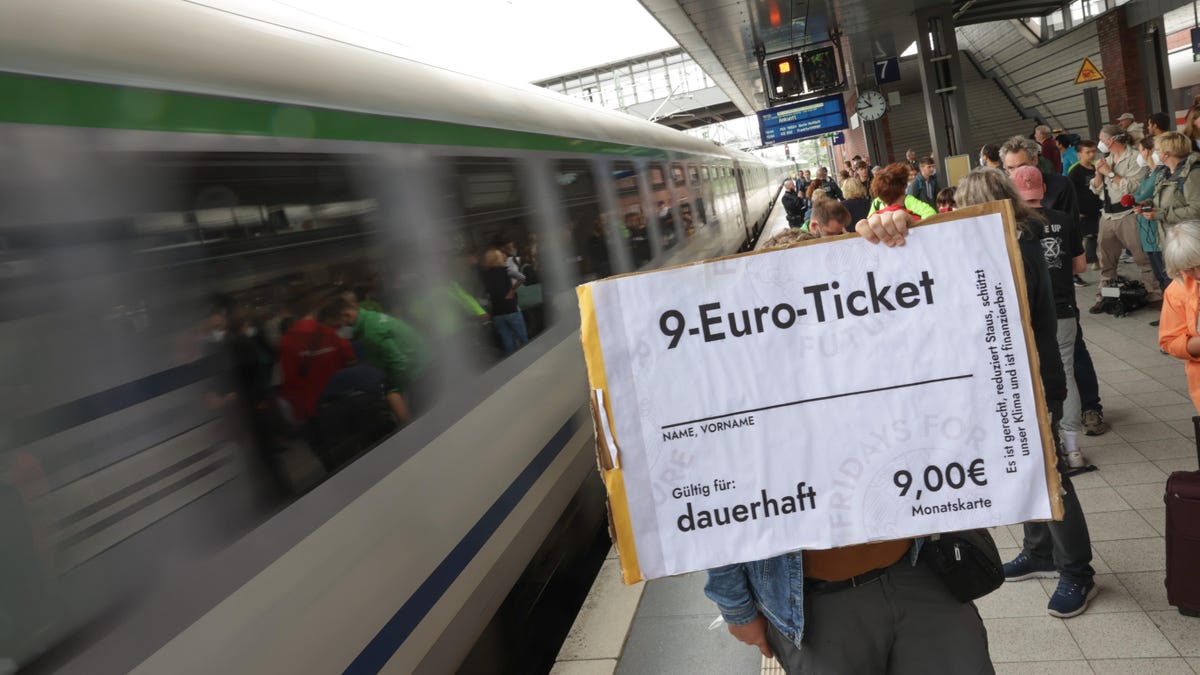Germany's $9 Unlimited Train Ticket Curbed Carbon Emissions by Nearly 2 Million Tons

People in Germany are demanding an extension to the lower fares, as seen here in Gesundbrunnen Station.Photo: Jörg Carstensen (Getty Images)
It turns out that making public transportation cheaper is good for passengers and the environment. Germany’s low cost, unlimited train fare that ran through the summer, known as the “9-euro” ticket, prevented 1.8 million tons of CO2 being dumped into the atmosphere as commuters opted for the train over their cars, according to Bloomberg.
Mercedes-Benz Twin-Turbo V8s Are Back!
The reduction in carbon emissions thanks to the wildly successful experiment is equivalent to powering some 350,000 homes for an entire year, as Bloomberg reports. Keep in mind that the experiment ran for three short months. Just imagine how much atmospheric pollution Germany — or any other country, for that matter — could prevent, if measures like the 9-euro ticket were permanent.
Photo: Jörg Carstensen (Getty Images)
That’s more or less what some German politicians are arguing for. Petra Berg, the environment and mobility minister from Saarland in western Germany, has asked the government to prolong the subsidy, which expired on August 31.
She said in a statement that the country “must find a convincing follow-up solution for a nationwide local transport ticket to continue to relieve the citizens who depend on it in times of rising prices and costs.” In her statement to the VDV, Berg emphasized that the majority of commuters used the cheap tickets to go about their daily lives — to medical appointments, to buy groceries and on other errands.
G/O Media may get a commission
Unfold your phone’s potential
The Z Fold4 is Samsung’s premiere Galaxy smartphone, featuring a 6.2″ cover screen that unfolds to a wide 7.6″ display on the inside as well as an under-display camera. Ordering one today will grant you $150 in Samsung credit to be put toward additional accessories.
Presumably, her point was that these tickets weren’t just used for leisure and recreation during the summer. She argues that in order to convince people to permanently trade cars for public transportation for everyday trips, these public networks have to be expanded.
Data from a survey commissioned by the German government proves Petra Berg right: at least one out of ten ticket buyers took the train instead of their car to go about their daily trips. And 52 million tickets were sold in total. That’s a solid rate of conversion, which then yielded lower CO2 emissions — 1.8 million tons-worth.
Germany’s transportation sector has been accused of failing to meet its environmental targets in the past, per Bloomberg. Last year, it fell short by 3 million tons of CO2. It seems that extending the cheaper fares could be an easy way to lower emissions. One which everyone seems to benefit from, whether it’s commuters, government agencies or the environment.
Photo: Robert Michael (Getty Images)



